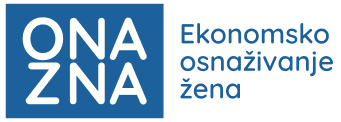
Empowering women should not be mere quota fulfilment
The “She Knows” project launched

The “She Knows” project will improve the economic inclusion of women in Serbia over four years by increasing their potential for employment, encouraging self-employment and independent business.
Although two-thirds of companies have policies and initiatives related to women’s empowerment, their earnings are still 20% lower than men’s. The biggest challenge in the workplace for women is balancing professional and private life, according to research by the American Chamber of Commerce (AmCham).
The official launch of the four-year “She Knows” project, funded by the American Agency for International Development (USAID) and implemented by Impact Hub Belgrade, in partnership with AmCham Serbia, the Center for Development of Jablanica and Pcinja Districts (CRJPO), and Erste Bank, took place at the Metropol Palace Hotel in Belgrade.
The project will improve the economic inclusion of women in Serbia over four years by increasing their potential for employment, encouraging self-employment and independent business. Activities will primarily focus on women from rural areas, especially those who are unemployed, not undergoing training programs, or have insufficient professional qualifications, while at the national level, the project will provide technical support to women-led enterprises.
Brooke Isham, director of the USAID Mission in Serbia, pointed out that the project’s goal is to empower women to participate in Serbia’s economic development.
“At the same time, we will help women entrepreneurs improve their financial literacy,” she said during the introductory speech.
According to her, this type of project is very important because experience from many countries has shown that including women in the economy is not just a matter of fairness but is crucial for creating more advanced communities.
The research presented by AmCham was conducted online and covered 78 companies, mainly large and medium-sized enterprises in Belgrade and Vojvodina. The research included a focus group, i.e., four in-depth interviews.
Although the research showed that the share of men and women is equal at the highest managerial positions, the highest salary in the company “by rule” belongs to a man, as 70% of the highest salaries within companies are held by men.
Commissioner for the Protection of Equality Brankica Janković told the media before the event that, according to data from the Business Registers Agency, only 25% of women hold director positions, while 27% are legal representatives.
“That is a figure that should alert us, to see what obstacles women face to perform the highest leadership functions,” said Janković.
During the project presentation, a panel was held on “Developing an inclusive work environment that allows women to thrive.”
Empowering women should not be mere quota fulfillment and “checking off” obligations without substantial progress in society, and for that, a strong ecosystem is needed to stimulate women on their path to success, were the main messages from this panel discussion.
Gaia Montelatici, CEO and co-founder of Impact Hub Belgrade, said that it is “surprising that research has shown that awareness of the importance of gender equality is at a lower level than expected,” since the practice abroad is completely different.
“There needs to be greater awareness of the importance of gender equality in society, as we face different expectations, which can later deepen inequality in the workplace, in the family, creating the need for practices that would highlight the significance of this issue,” believes Montelatici.
During the panel discussion, the focus was on the importance of a social ecosystem for empowering women.
Jelena Isaković, director of publishing at Ringier, pointed out that this “ecosystem” for women should provide not only economic but also psychological empowerment – within the family, among friends, colleagues…
“In order not to have so many divisions between men and women, especially in the business world, it is necessary for a woman to be financially independent, emotionally stable, authentic, and to listen to her intuition,” agrees Manja Bogićević, founder and CEO of Kagera.ai.
Dragana Belenzada, director of the Center for Development of Jablanica and Pcinja Districts, said that to bridge the gender gap, it is necessary to promote equality, equal opportunities, and create a favorable business environment where, along with the family, colleagues will also be a support.
She emphasized the importance of four groups of standardized services that are available, including training, advisory services, mentoring, and a package of support services for young and women entrepreneurs, aimed at greater support for the growth and development of micro, small, and medium enterprises, as well as entrepreneurs.
Sonja Konakov Svirčev, manager for corporate social responsibility, diversity, and inclusion at Erste Bank, spoke about the importance of involving the economy in empowering women, as well as the state and NGO sector.
“Each of us must work on ourselves and explore what suits us and where we find ourselves in our work. It is necessary to explore the space that allows development and realization of potential, and initiatives like this are an important link in this process – we talk, exchange ideas, connect, and from that, an idea is born,” said Konakov Svirčev.



